The Gordon setter is a large sporting dog of combined English and Scottish origin. Other common names for Gordon setters are black setters and tan setters. These dogs are high-energy with bold and outgoing personalities.
Gordon setters are best suited to households with ample space and an active lifestyle that includes plenty of exercises, such as running, swimming, and hiking. One downside of these dogs is that they require a lot of attention and can become jealous of other family members or pets.
Gordon setter puppies typically cost $1,000–$2,000. Prices vary depending on breeder, location, and availability.
TABLE OF CONTENTS
Gordon Setter Characteristics & Overview
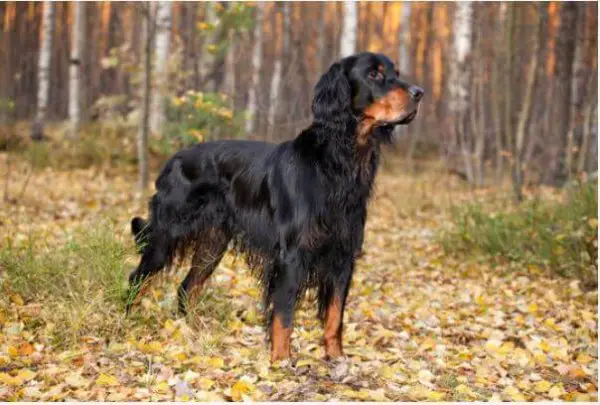
From Adobe Stock
| Common names: | Black setter, tan setter |
| Origin: | England and Scotland |
| Breed group: | Sporting dog |
| Size: | Large |
| Height: | Females: 22.8–25.9 inches Males: 24–27.1 inches |
| Weight: | Females: 44–70 pounds, Males: 55–79 pounds |
| Colors: | Black and tan |
| Coat: | Straight to wavy, silky, mixed length |
| Life expectancy: | 10–12 years |
| Temperament: | Eager to please, alert, loyal |
| Shedding: | Moderate shedders |
| Barking tendency: | Moderate |
| Cost: | $1,000–$2,000 |
Origin & Purpose
The 4th Duke of Gordon, Alexander Gordon, is credited with developing the Gordon setter breed in the early 1800s. Alexander established a kennel consisting of more than 1,500 dogs and sought to create a versatile hunting dog that could point, flush, and retrieve game.
The Duke bred setters with other breeds over the years to get the characteristic black and tan Gordon setter known today. The breed was officially recognized as a distinct breed by the American Kennel Club in 1924.
Lifespan
The average lifespan of a Gordon setter is 10–12 years. Careless breeding practices and health issues like hip and elbow dysplasia contribute to shorter lifespans in these dogs.
Gordon Setter Appearance
Gordon setters have a beautiful, lustrous coat in black and tan. Their slender bodies and muscular legs give them an elegant look accentuated by their long, feathery tails.
The breed is characterized by two tan spots on the chest and one above each eye.
Height and Weight
Gordon setters are large dogs with a height of 22.8–25.9 inches for females and 24–27.1 inches for males. The weight ranges between 44–71 pounds for females and 55–79 pounds for males.
Their size varies depending on breeding and lineage, but these dogs are typically larger than other setter breeds.
Puppies weigh 9–12 pounds at 8 weeks old and are mature when they reach 34–36 months old.
Colors
The Gordon setter is notoriously black and tan, with black penciling on the toes, tan marking on the chest, and two tan spots above the eyes. The dog may also have a white spot on the chest.
Coat
Gordon setters have a long, wavy double coat that is silky and dense. The outer coat is coarse and thick, while the undercoat is soft and fine. The coat is waterproof and provides good insulation in cold weather. Regular grooming is necessary to prevent mats and tangles.
Personality and Temperament

From Adobe Stock
The Gordon setter is a friendly, intelligent dog, according to the AKC breed temperament guide, and this breed loves to be around people. Proper training and socialization are essential, as the breed can be willful and independent if not adequately trained.
The enthusiastic nature of these dogs means they excel in activities like obedience, agility, tracking, and hunting.
Gordon setters will show affection and loyalty to their family, but the dogs can also be protective of their territory, especially around other pets or dogs of different breeds. These dogs are an active, high-spirited breed that needs plenty of exercise and space to run.
They are not suited for apartment living because they need a yard to play and roam.
Barking
A Gordon setter will bark when they hear or see something unusual. This breed has a deep bark that can be intimidating.
These dogs are very vocal and will bark when they’re playing, exercising, or want attention from their owners.
Gordon Setter Care
Caring for a Gordon setter is moderately difficult. The breed needs lots of exercise, regular grooming, and a nutritious diet. A large yard is ideal, as the dog needs plenty of room to run and play.
Food Needs
The Gordon setter is a large breed of dog that needs high-quality food rich in protein and fat. An ideal diet includes lean meats, vegetables, and ground bones. Divide two to three cups of high-quality dry food into two meals per day.
Grooming Needs
Grooming this breed involves brushing its coat once or twice a week to keep the hair free of mats and tangles. Trimming the long hairs around the ears and feet is necessary to keep the dog looking neat.
Occasional clipping or stripping keeps the coat healthy and shiny. Bathing is only necessary when the dog gets dirty or smells bad.
Exercise Needs
The Gordon setter needs at least an hour or two of exercise every day. The breed loves to run and play, so a large yard is ideal. Taking the dog on long walks or hikes is also a great way to exercise.
Restrictive environments like apartments or small, enclosed yards do not suit these dogs.
Mental Needs
The Gordon setter is an intelligent breed that loves to learn new things. The breed excels in obedience and agility training. Mental stimulation is just as important as physical exercise for these dogs.
Games such as hide and seek, fetch, or tug-of-war are a great way to keep the dog entertained.
Common Health Concerns
Gordon setters are prone to a few common health problems, including the following:
- Rabies: a virus that affects the central nervous system and is deadly to dogs. Signs of rabies infection include fever, seizures, paralysis, and aggression.
- Leptospirosis: a bacterial infection that is deadly to dogs. Signs of infections conclude depression, lethargy, fever, and vomiting. Serious infections lead to kidney inflammation, but treatment with antibiotics such as doxycycline clears the bacteria
- Canine hip dysplasia: a condition that affects the hip joints, is also common in the breed. The condition appears during the growth phase when bones and cartilage don’t form properly.
- Gastric torsion: a life-threatening condition in which the stomach fills with gas and then twists, cutting off the blood supply. Symptoms of bloat include vomiting, excessive salivation, and a distended abdomen.
- Canine parvovirus: a common virus in unvaccinated puppies. The infection affects the gastrointestinal tract and is a result of direct contamination with dog feces. Signs of parvo infection include vomiting, loss of appetite, lethargy, dehydration, and weakness.
Other health complications may include progressive retinal atrophy, epilepsy, hypothyroidism, and skin allergies. Help avoid these issues with proper nutrition and preventive care.
Training
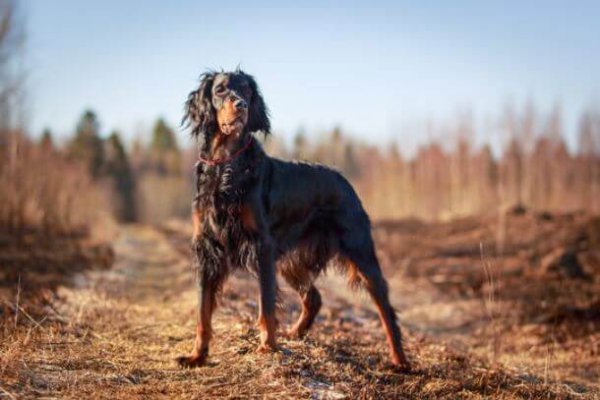
From Adobe Stock
Gordon setters are smart dogs that love to learn. However, training these dogs can be difficult due to their high energy. Positive reinforcement is the best way to train this breed. Start training early and be patient.
This breed loves to please its owner and will learn fast if given the opportunity. Training in obedience should start when the dog is still a puppy, at about eight weeks old.
Provide adequate training within the first six months, when the dog is most receptive to learning.
Gordon Setter Price
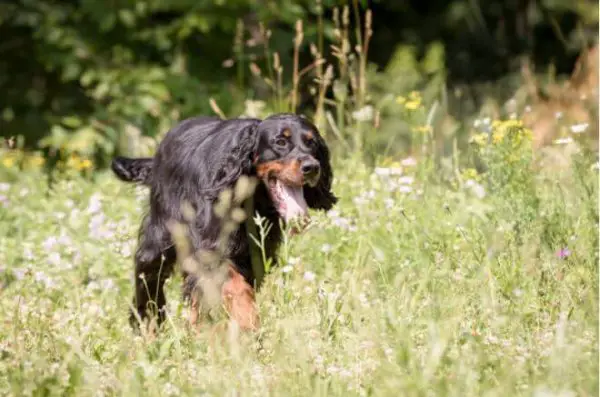
From Adobe Stock
Gordon setters are expensive because they’re a rare breed. The price may vary depending on whether the dog is from an adoption agency or breeder.
Breeders price Gordon setters higher than adoption agencies because of the intensive health screenings and care given to the puppies.
How Much Is a Gordon Setter?
A Gordon setter puppy typically costs $1,000–$2,000. Adoption agencies can charge $300–$500 for an adult to cover the costs of medical care and food.
How Much Does it Cost to Own a Gordon Setter?
The average annual cost to own a Gordon setter from the first year is $4,500. Due to vet bills and other initial expenses, the first year of ownership is more costly than subsequent years.
The cost of ownership in the following years averages $1,750, annually, including food, medical care, and supplies.
Is This Breed Right for You?
A Gordon setter is an excellent choice for a family dog because its playful nature, loyal personality, and high energy level make the breed great for active families.
The dog needs plenty of exercise and a mentally stimulating environment to stay happy and healthy. A Gordon setter is not well-suited for first-time dog owners or people who live in restrictive environments.
Who Should Get a Gordon Setter?
Large families with children will enjoy the traits of the Gordon setter. Active singles or families will need to provide enough exercise for their dog.
The active nature of this breed makes it ideal for participating in search and rescue, agility, tracking, obedience, showmanship, and hunting.
Who Should Not Get a Gordon Setter?
A Gordon setter is not well-suited to those living in apartments or condos. Also, first-time dog owners may not be prepared for the high energy level of this breed.
Inactive families or single people may not be able to provide enough exercise for their dogs. Owners with other pets should be cautious, as Gordon setters are prone to jealousy and aggression towards other animals.

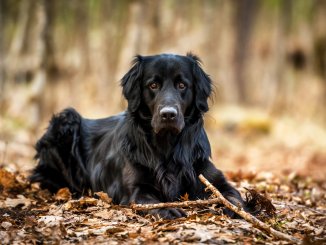
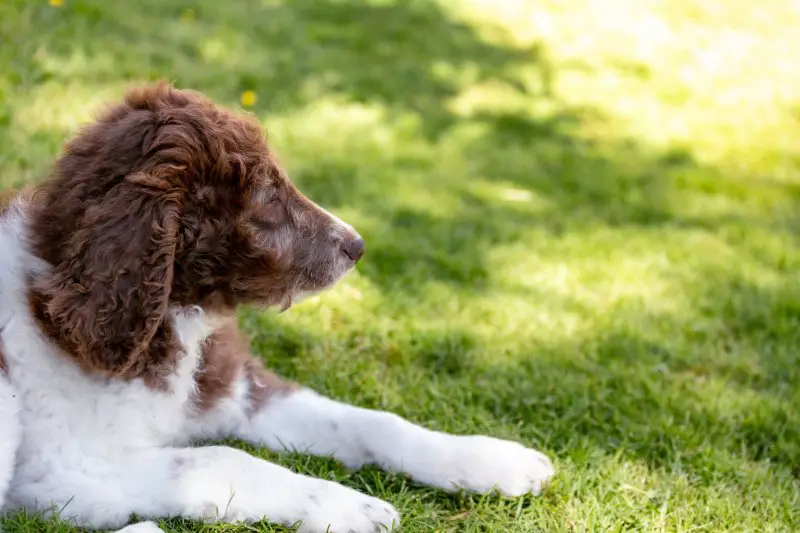
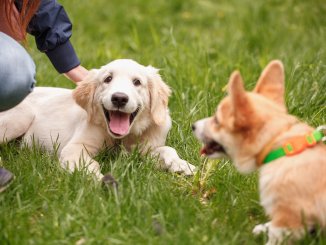
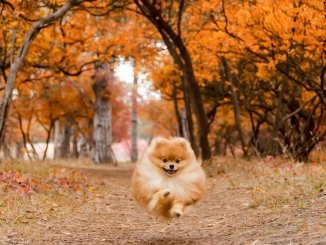

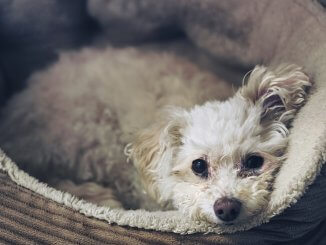
Be the first to comment